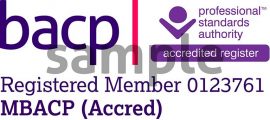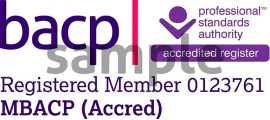NEW PAGE
A confidential space to explore the thoughts, feelings and challenges in your life
Counselling and therapy for individuals in a safe, comfortable and private setting
Welcome, and thank you for visiting Wellbeing Counselling.
My name is John Doe and I am a counsellor providing both short- and long-term therapy to adult individuals in Bristol City Centre. I also offer counselling by telephone or online, using Skype and Zoom.
We all experience times of difficulty in our lives, when events or relationships feel overwhelming, or we can feel a loss of direction or purpose. Talking to a trained professional helps us make sense of those challenging times and offers a way through them, moving towards a better understanding of ourselves and our feelings.

I work with people from all walks of life and backgrounds, coming to me with a diverse range of problems. As a fully-qualified counsellor I am a member of the British Association of Counselling and Psychotherapy, and abide by their code of ethics.

Making the decision to see a counsellor is a big step to take - but it can be a positive one. Please read on to find out more about how I could help you.
How can counselling help?
Life brings many challenges, and it is understandable that at times we might look for support in facing them. As a counsellor my role is to provide space and guidance to help you on your journey of self-discovery; to enable you to examine your life and make new, meaningful choices within it.
I offer a chance to reflect on the difficulties or problems you are experiencing in a safe and confidential environment, with someone from outside your day-to-day life. Together we can explore your situation in a way that leads to fresh perspectives - and perhaps a new understanding of yourself. Counselling isn’t about giving you solutions or advice, but empowering you to make your own changes.
My approach to therapy is a person-centred one. This is a non-judgmental way of working, where the counsellor creates the right conditions to help someone increase their self-awareness; to move towards - and reach - their fullest potential.

Speak in Confidence
Counselling takes place in a safe space, where you can meet with someone who will listen with sensitivity and empathy - and without judgement. In the therapy space thoughts and feelings can be expressed freely and in confidence.

A problem shared...
Trouble with a relationship; anxiety or panic attacks; mood swings or depression - many people face difficulties in their everyday lives that can be hard to get on top of. Counselling gives us a set of tools we can use to help gain a better understanding of what’s causing these problems - and how you can move towards managing or resolving them.

Make better, healthier new choices
Working together I can help you gain greater insight into the difficulties you are facing, help you understand why you act or react to them the way you do, and see how you can start to make better, heathier choices moving forward.
What issues can counselling help with?
People come to me for help a wide range of issues. Here are a few of the more common difficulties that can be supported through counselling:
Feelings of stress or anxiety
Panic attacks
Relationship problems
Grief, loss or bereavement
Problems with addiction
Trauma and post-traumatic stress
Abuse
Depression
Problems with confidence or self-esteem
Anger management
Issues relating to sexuality
Difficulties at work or in retirement
Problems with family or school life
I have a particular interest in helping families negotiate the stresses of modern life; whether that relates to the balance between work and partner/family time, issues around parenting and how to adapt as children grow older, or help for parents whose children are unsettled at school - perhaps experiencing bullying, difficulties with studying or exam stress.
While I don’t provide counselling to couples or families, it can often help for an adult partner or parent to be heard individually, working with someone who can help them understand and move forward through the difficulties they and the family are facing.

What my clients say...
My location
I work from private offices located in a quiet part of Bristol City Centre BS1, and see clients from central Bristol and Redcliffe as well as the surrounding St Paul's, Southville and Bedminster areas. I will provide location details when we arrange our counselling sesisons.
In addition to providing face-to-face therapy, I also offer telephone counselling and online sessions for clients in the North Somerset area and beyond via Zoom or Skype. Contact me to find out more about how online therapy works.
Fees & availability
Counselling sessions for individuals last 50 minutes, usually taking place on a weekly basis, and cost £60 per session. I also provide a limited number of spaces for those on low-income or for students; contact me to enquire about availability. Initial assessment appointments last around 75 minutes.
Note that if you want to cancel an appointment I require 48 hours’ notice; otherwise you will still need to pay for any sessions missed. I accept payment in cash, by cheque or by bank transfer.
Get in touch
Feel free to contact me if you have any questions about how counselling works, or to arrange an initial assessment appointment. This enables us to discuss the reasons you are thinking of coming to counselling, whether it could be helpful for you and whether I am the right therapist to help.
You can also call me on 01234 567 890 if you would prefer to leave a message or speak to me first. I am happy to discuss any queries or questions you may have prior to arranging an initial appointment.
All enquires are usually answered within 24 hours, and all contact is strictly confidential and uses secure phone and email services. Find out more by reading my Privacy Policy.
More about my approach & qualifications
Before becoming a counsellor I worked as a manager in the service industry, interacting with the general public and managing staff. Working environments tend to generate a lot of 'people problems' with customers and staff, so I became quite experienced at resolving conflicts, complains on the shop floor and personal problems with my staff.
After taking a break in from my career to start a family, I decided that rather than returning to management I would build on the experience and skills I had developed and retain as a counsellor.

I am a person-centred theorist, which means my job is accompany you on your journey - as a fellow traveller and sometimes guide - towards what the founder of person-centred counselling, Carl Rogers, called ‘self-actualisation’. Person-centred work is focussed on empathy, a non-judgemental approach and providing emotional support; everyone has a built-in motivation to reach for their full potential, but sometimes need a bit of support to get there!

One of the main bodies overseeing the accreditation and registration of counsellors in the United Kingdom is the British Association for Counselling and Psychotherapy (BACP). I am a BACP Accredited Counsellor, which means I have met their criteria for qualified and experienced therapists and work in accordance with their ethical framework.
It also means that you have access to their complaints procedure, for your safety and protection. In order to maintain my BACP accreditation I undergo at least 30 hours of professionaldevelopment each year. You can visit the BACP website here, and will find me listed in their directory here.
Frequently asked questions
Many therapists tend to view Counselling as ‘short-term’ work; when someone has a problem that can be looked at and discussed in a clearly-resolvable way. This work often requires undertaking sessions for a certain number of weeks, to explore, discover and clarify a way forward. Therapy is a word used more to describe ‘long-term’ work; discussion that tends towards substantial issues and things that might be life-changing on a deeper level.
Whether counselling or therapy work best as a short- or long-term option depends on the client though, and the difficulties they are facing. In some cases counselling can prove helpful as a continuing, longer-term option, or therapy can help resolve an issue in just a few sessions.
There’s no fixed or ideal length of time for the counselling process; it varies from person to person and will often depend on the depth of the issues they are facing. While I can work on an open-ended basis with clients, I find it is helpful for us to both agree before we start on undertaking a certian nunebr of sessions and reviewing where we are at once we reach that point. You are able to decide how long your therapy willl last, and in return my aim is to make sure therapy continues for only as long as it is of benefit to you.
This depends on what your needs are. Some people find that after only a very few sessions they have some clarity and focus and are ready to end the therapy. Other people value the ongoing support and relationship with me and will continue to come for weeks, months, or even years. There is no 'one-size-fits-all' when it comes to therapy.
My aim is to offer you a first appointment, known as an assessment session within 1-2 weeks, this is once we receive your completed client pack back. However, waiting times will vary according to pressure on our resources, your own availability and the service you seek.
An appointment to our short term counselling, which is not subsidised, can be offered within about one week.
Confidentiality is one of the main ways in which therapy differs from many other forms of helping - for example, talking to friends or family can rarely offer the same degree of confidentiality as talking to a counsellor. Because of this confidentiality, you will find that - as you get used to coming for therapy - you are freer to talk about whatever you wish to.
No therapist can offer 100% confidentiality: there are some situations where the law requires disclosure of risk (e.g. certain child protection issues) and in common with most other therapists, there are some situations where I may not be able to keep total confidentiality. In particular, if someone tells me that they are thinking of harming themselves in a way that I believe puts them at serious risk, or if someone tells me that they are doing something that could put others at risk, I may not be able to keep such information confidential. However, breaking confidentiality is rare, and only happens after talking to the person concerned.
When you come for counselling it's important that you feel free to talk about whatever is important to you. Sometimes, you may not be clear what those issues are. Having a friend or family member with you is not usually helpful because they may have their own agenda for you. Even if this is just that they want to be supportive, or want you to 'get better', this agenda can prevent us opening issues up. When you come for therapy, you may need to explore thoughts or behaviours about which you feel ashamed or embarrassed and you may censor yourself so as not to hurt someone, or you may find that what they want you to talk about is not really what you need to discuss.
Sometimes, family/friends can even be part of an underlying issue which needs to be aired and discussed. Usually, people who ask this question are nervous about coming for a session alone, or they are anxious for the person who is thinking about arranging sessions. This anxiety is quite normal, and you will not be forced to talk about anything you feel uncomfortable about - but you do need to be able to talk about whatever is important. For this reason, I do not see clients accompanied by friends or family
You may not know it, but you’ve already taken the first step...
It can be scary and confusing making the decision to contact a counsellor or therapist, but in my experience people will struggle with a mental health issue, a personal crisis or problems with a relationship for much longer than is healthy. Sometimes a friend has proved a source of comfort, but this help can only go so far. Realising that resolving a problem requires something more means you have actually already taken the first step towards improving your life.
How I see it...
I have worked as a counsellor for a number of years now, and have come to believe that unless someone wants to change and has the desire to ‘put in the yards’ and undertake the work, counselling will likely be of limited value. The skill of a counsellor is in helping people to help themselves... the person coming to therapy has to want that help, and be prepared to act on it.
A fascinating journey begins here...
Seeing a therapist is not a passive act; it isn’t like visiting the doctor to be measured, assessed and treated. You don’t come away after one appointment with a pill to take and the responsibility ends there. Counselling and therapy are journeys with a guide through a familiar but somehow unusual land; they can be rewarding, sometimes confusing and often revelatory... what they aren’t is passive!
©2021 Kim Thomas
powered by WebHealer
